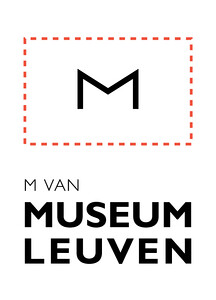Eija-Liisa Ahtila
May 18–September 16, 2018
L. Vanderkelenstraat 28
B–3000 Leuven
Belgium
Hours: Thursday 11am–10pm,
Friday–Tuesday 11am–6pm
T +32 16 27 29 29
info@mleuven.be
Contemporary visual artist and filmmaker Eija-Liisa Ahtila (Finland, 1959) has long been considered a master of the cinematic installation form. Her work is conceptually organized around the construction of image, language, narrative, and space, and she has often probed individual identity and the boundaries of the subject in relation to the external world. Using the visual language of cinema, Ahtila presents large-scale installations with multiple channel projections on multiple screen constructions. These viewing conditions, with their simultaneously charged vantage points, break the tradition of cinematic perspective and construct an experience of several co-existing times and spaces for being.
Eija-Liisa Ahtila experiments with narrative storytelling in her cinematic installations and films. In her earlier works, she has dealt with the unsettling human dramas at the centre of personal relationships—teenage sexuality, family relations, mental disintegration and death. Her later works deal with profound and basic artistic questions where she investigates the processes of perception and attribution of meaning, at times in the light of larger cultural and existential thematics like colonialism, faith and posthumanism. The artist encourages us to explore how the anthropocentric medium of film might enable us to narrate the very life of the planet as well as our own. The starting point for many of her recent works and research has for instance been the eco-cinematic question: how and with what kind of technology, drama and expressive devices can we build the image of our world in this present moment of ecological crisis?
This exhibition curated by Eva Wittocx offers a survey of Ahtila’s practice through seven film installations made between 2001 and 2018 and a series of drawings. Each of the works has been redesigned for its specific presentation at M.
In the photographic images of the artist Jim Campers (Belgium, 1990) time and space are seemingly subordinate to the interplay of composition, light and depth. Recurring themes in his work include withdrawal from society, living in harmony with nature and the counter-cultures of the ’60s and ’70s. Campers employs a variety of photographic styles and practices: some of his images resemble scientific illustrations or travel journals, while others recall advertisements or experiments with avant-garde abstraction.
His images are never non-committal. Research is crucial to the way he approaches his subjects and geographical locations. By presenting the photographs side by side in constantly shifting associations, Campers forges new connections, out of which an open narrative emerges. Each image is a fragment within a ceaselessly developing story.
In his exhibition Forward Escape into the Past, the artist is showing photographs from his two most recent projects, set in a scenography of blocks of hemp. The two photographic series are thematically linked by the title of the exhibition, which suggests an alternative future for humanity: one far removed from technological progress, in which human beings seek a connection with their past and with nature. On the occasion of this exhibition, Art Paper Editions is also publishing his first artist book. This show is a collaboration with De Brakke Grond - Amsterdam and is curated by Valerie Verhack.
Press: For more information, please contact Veerle Ausloos, veerle.ausloos [at] leuven.be


